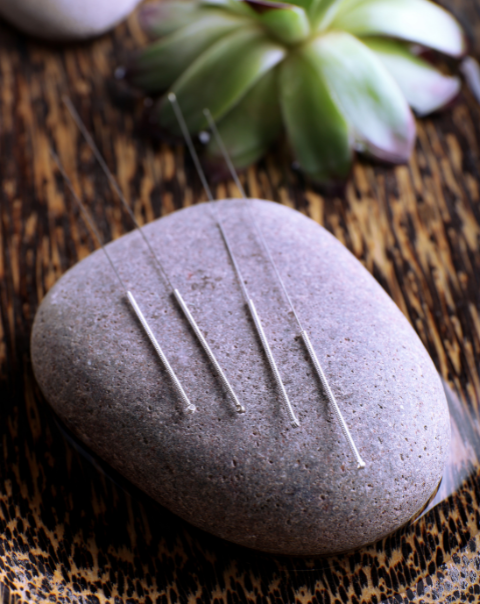What is Acupuncture?
The intended goal of acupuncture remains the same now as it was thousands of years ago when originated in China: restoring balance to the body. The practice of acupuncture is based on energy or Qi flowing through the body along a series of channels called meridians, a way that is like nerves and vessels that carry messages and blood throughout every system.
Based on Traditional Chinese Medicine theory each meridian is related to a specific organ, and inserting thin needles at certain points along these meridians can affect certain changes in the body to restore homeostasis. These needles are not hypodermic, meaning they are not as thick as the needles used in drawing blood from the body in Western medicine. They are very thin like a string of hair or bits of wire.
Placing these needles along the meridian is believed to cause reactions like sending more blood or lymphatic fluids to specific organs or allowing muscles to release in a way that reduces tension on joints and bones. The needles are medicine itself. They can stimulate nerves and tweak the nervous system regulation to result in a relaxation response that relieves pain.

What Research Is Done On The Effect of Acupuncture?
Research on Acupuncture has been extensive, and so far, robust evidence supports its effectiveness for some, but not all conditions. According to the analysis published in February 2022 in the BMJ that analyzed more than 2000 scientific reviews of acupuncture therapies. The science is strong behind acupuncture efficacy for post-stroke aphasia, neck, shoulder, and muscle pain, fibromyalgia pain; lactation issues after deliveries; lower back pain; vascular dementia symptoms; allergy symptoms.
Is Acupuncture Effective In Treating Mental Health Issues?
Acupuncture for mental health issues like depression and anxiety is another major research direction, especially in terms of how these issues affect overall health. As a matter of fact, chronic pain has been linked to depressive symptoms, so researchers are looking at whether acupuncture can address both: a person’s pain and depression. Researchers are hopeful. A study published 2020 in 2020 in the journal Frontiers in Neurology found that people with migraines who did acupuncture had a lower risk of depression and anxiety, and tended to use medical services less often, compared to migraine patients who did not do acupuncture.
